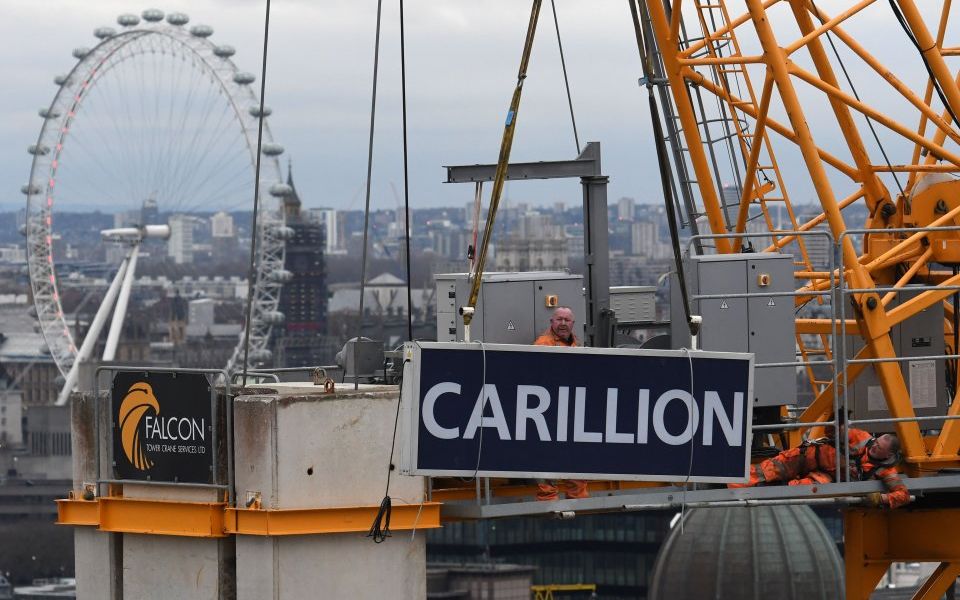- SBD - You will love The Nike Air VaporMax Run Utility if - 700 Release Date - Nike Air Zoom Pegasus 36 Cody Hudson Yellow CI1723
- Nike Jordan Jumpman hoodie in grey - release dates & sneakers., Jordans - Yeezys, Urlfreeze News
- nike flyknit roshe electric green black Paris 308270 - SBD - nike boot with side zipper jeans black pants size , 111 Release Date
- IetpShops - Is a Nike SB x Air Jordan 8 Retro BG Three - 142 Pine Green in the Pipeline Low PSG DZ4133 , 008 Release Date - Is a Nike SB x Air Jordan 4 Pine Green in the Pipeline - Peat 305368
- nike outlet quarry market
- on feet air jordan 1 low chicago
- air jordan xxxv cq4227 004
- Air Jordan 1 Paisley Bandana Release Date
- nike air force 1 low white gold dc2181 100 release date info
- kids air jordan
- Home
- News and analysis
- Info hubs
- Events
- Video
- Case Studies
- About us
- Magazine
- Advertising
Produced for the industry by the Association for Consultancy and Engineering
News
MPs slam former Carillion bosses as firm’s problems are revealed

Former Carillion bosses took it in turns to apologise today for their role in the former industry giant’s demise as MPs lambasted former senior board members for leaving thousands of people out of work and without pensions they expected.
Seven former Carillion directors were giving evidence to MPs as part of a joint inquiry by two select committees. It was part of an investigation into the role played by senior bosses at the collapsed firm which led to approximately 20,000 people out of work, multimillion pound contracts unfinished, £800m of liabilities and a pension deficit estimated to be just short of £1bn.
The questioning was undertaken in two parts with former Carillion chief executive Keith Cochrane answering most of the questions in the first half. Cochrane was appointed interim chief executive last July after a shock profit warning was issued. He told the committee he was “truly sorry” the firm did not survive and even revealed he had remained hopeful of rescuing the company right until the end. The former chief executive said he wrote to the government less than 48 hours before the firm collapsed to try secure £160m of funding in a bid to save the company, but this was ultimately rejected.
Speaking to MPs, Cochrane said: "It was the worst possible outcome. This was a business worth fighting for. That's what I sought to do during my time as chief executive. Clearly with the benefit of hindsight, should the board have been asking further, more probing questions, perhaps. Clearly the business did have issues. Do I wish we’d done something about it sooner, absolutely. At the time, all the decisions I took were seeking to do the best thing for the business.”
Rachel Reeves, chair of the business committee, then probed Carillion’s former finance director, Zafar Khan, who was sacked by the company just eight months into the role. She asked whether he could have done anymore to prevent the collapse and suggested he had “fell asleep at the wheel” during his tenure. Khan told the committee he believed he “did everything he could” to prevent the firm from going under. When asked about his eventual sacking in September 2017, the former director said he thought he had “spooked the board with results of the contract review".
"It was the worst possible outcome.This was a business worth fighting for. That's what I sought to do during my time as chief executive."
Keith Cochrane, former chief executive.
"No I don't believe I was asleep at the wheel because as soon as I came into the role we were looking to tackle the issues,” Khan added. “The key focus of my time in the role was to bring net debt down. I believe I did everything that I could have done, essentially. To my mind one of the issues that contributed was the fact our debt had grown over the past few years. That combined with the number of challenges we faced, in terms of four large contracts underperfoming significantly, in terms of the market, and the construction market in the UK.”
The inquiries today were taking place just 24 hours after it emerged that a further 452 jobs were being axed at Carillion, on top of 377 job losses announced last week. While the official receiver has said that around 1,000 former employees will be transferred onto other contracts, many more still await to hear their fate.

The second part of today’s investigation began with four former senior board members apologising for the collapse. Among those was former chairman Phillip Green who said he took “full and complete” responsibility for the demise of Carillion. Green also believed the company could have been saved and held out hope right until 14 January – the day before bosses announced liquidation. He outlined three reasons for collapse; high level of debt from 2013-16, a small number of contracts that went wrong and the inability to secure short-term funding last month.
“If I look back of course there are things we'd have done differently,” Green said. “Negotiations around the contract itself were done too quickly. If we had spent longer, some of the risks might have been mitigated. But I don't believe we had lower margins than our peers - we compared our margins on a regular basis, and ours compared favourably. We were all surprised by the extent and speed of deterioration in a small number of contracts between spring and autumn last year.”
As Green spoke about the huge amount of people affected by the collapse, Labour MP Frank Field reminded the former boss that he still managed to “take almost £1m out of the company while this was happening."
Former Carillion chief executive Richard Howson also appeared before MPs and he highlighted significant payment issues the firm struggled with. Howson conceded the construction company had signed up to a £200m World Cup construction deal with Qatar that meant the company couldn't walk away if money did not exchange hands. “The amount of energy and effort to make sure there is enough cashflow each month is extraordinary,” he added. “I felt like a bailiff just to try and collect cash.”
The two-part inquiry ended in an explosive manner as business committee chair Reeves called on the former bosses to demonstrate their sorrow by giving back bonuses they had received. She said: “All of you sitting here received multimillion payments from Carillion. You say how sad and disappointed you are. But what actions do you take? It’s just words. The money’s in the bank. Why don’t you give some money back and try to put right some of this wrong?”





